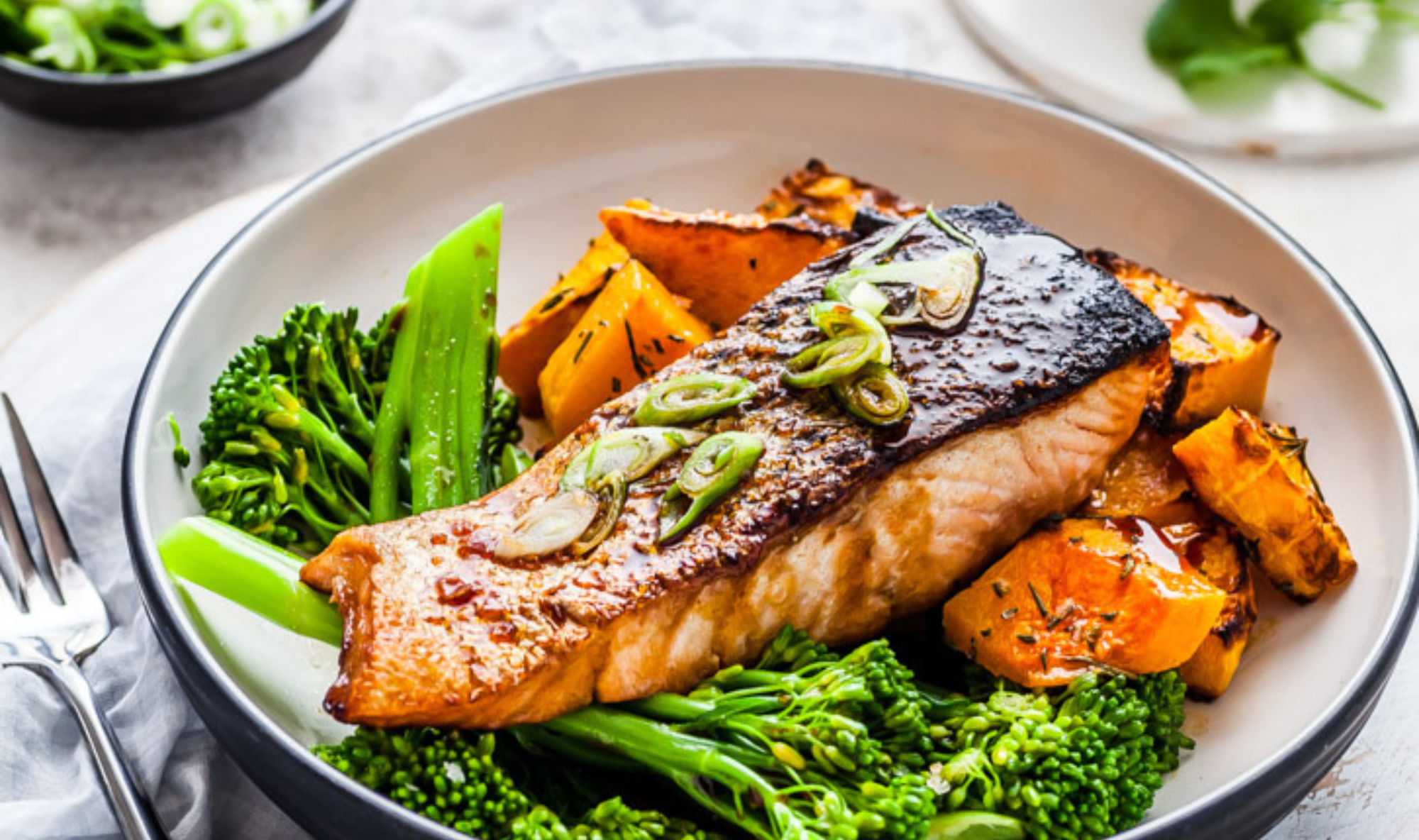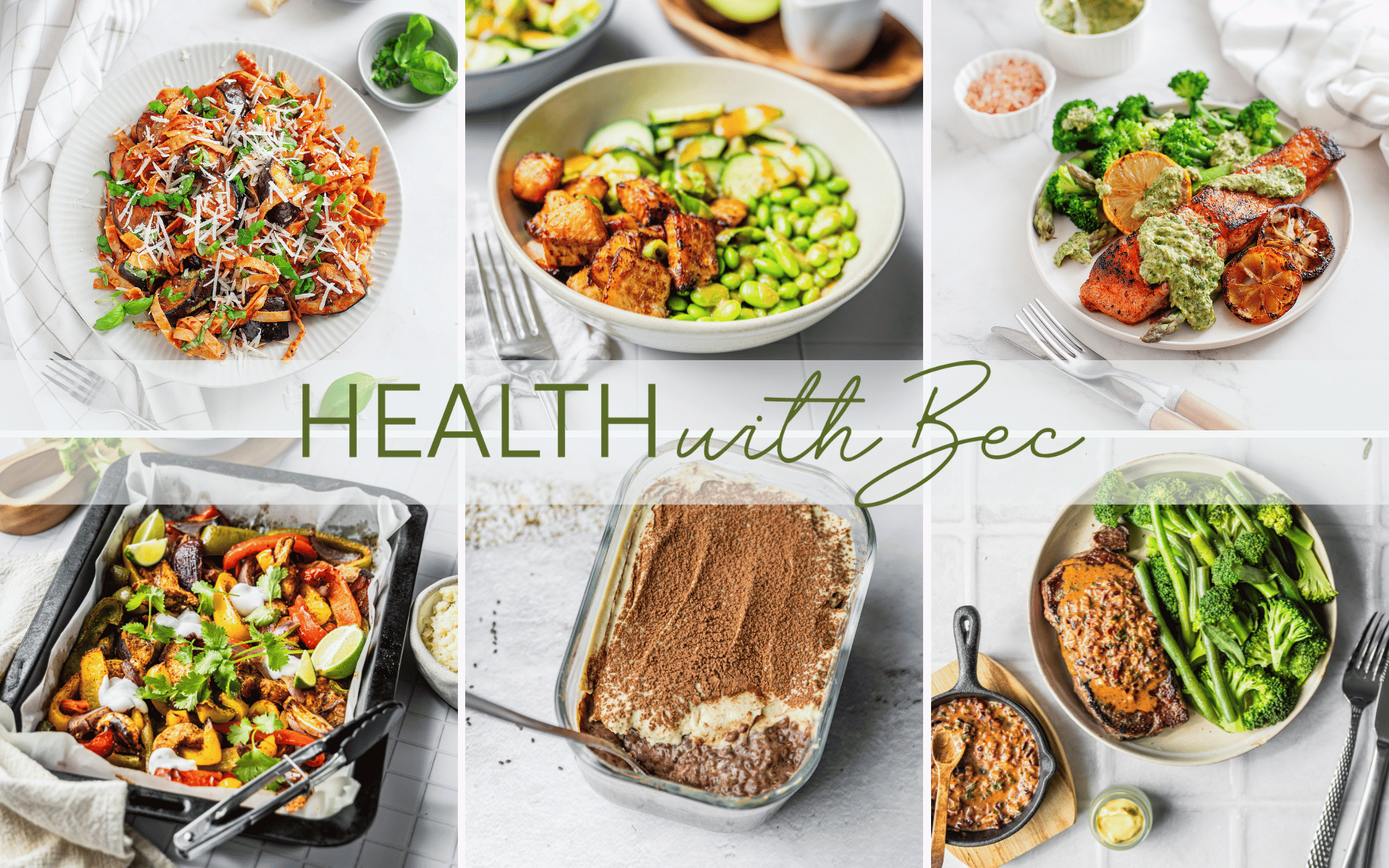The Hidden Link Between Gut Health, Inflammation, & Stubborn Weight Gain
If you’ve been doing “all the right things” but still feel bloated, puffy, tired, foggy, or stuck with stubborn weight that just won’t budge, there’s a good chance inflammation is playing a big role.
Chronic, low-grade inflammation is one of the most important things to address if you want to maintain a healthy weight, support your gut, and reduce your risk of chronic disease.
It doesn’t just affect how you feel – it can quietly impact how your body burns fat, digests food, balances hormones, regulates your mood, and even how much energy you have each day.
In this article, I’m breaking down what inflammation really is, how it might be silently affecting your body, and the simple, realistic steps you can take to calm inflammation, boost energy, and support your metabolism naturally – all without needing to be perfect.
What is Inflammation?
Inflammation is your body’s natural defence mechanism – it’s how your immune system responds to injury, infection, or stress.
Think of it like your body’s internal fire alarm. It’s helpful short term (it helps you heal), but if that alarm never switches off, it can start doing more harm than good.
There are two types of inflammation:
Acute inflammation: short-term and healing (like when you cut yourself or fight off a cold).
Chronic inflammation: long-term, low-grade inflammation that lingers – and that’s the one linked to many chronic diseases.
Over time, chronic inflammation can increase the risk of heart disease, type 2 diabetes, autoimmune conditions, Alzheimer’s, obesity, gut disorders, and even cancer.
Why Chronic Inflammation Is Harmful
When your immune system stays switched on for too long, it starts to attack healthy tissue. Your body keeps releasing chemicals meant to protect you – but in high amounts over time, they actually cause damage.
This constant low-level inflammation can mess with your metabolism, hormones, digestion, brain function, and energy levels.
Things like poor diet, too little movement, ongoing stress, or exposure to toxins can all make it worse.
So if you’re eating “well” but still feel puffy or sluggish, it could be inflammation working in the background.
How Chronic Inflammation Might Be Showing Up in Your Body
Chronic, low-grade inflammation can be tricky to spot because the symptoms are often subtle and easy to brush off as “normal.” You might not feel sick, but you also don’t feel your best.
Some of the most common signs include:
Feeling tired all the time (even after a full night’s sleep)
Brain fog or poor focus
Low mood or mild anxiety
Trouble sleeping or restless sleep
Difficulty losing weight
Bloating or gut issues
Aches and pains that don’t seem to have a clear cause
These symptoms happen because your immune system is slightly “switched on” all the time, even when there’s no real threat.
Over time, it can also affect your metabolism and lead to things like:
Insulin resistance (making it harder to lose weight)
Slightly high blood pressure or cholesterol
Weakened immunity – meaning you catch colds more easily or take longer to recover
The tricky part? These signs can appear years before any chronic disease is officially diagnosed. So even if your blood tests look “normal,” your body might still be showing early hints that inflammation is at play.
In short: Ongoing low-grade inflammation can quietly drain your energy, slow your metabolism, and make it harder to feel your best – even before major health issues show up.
Foods That Increase Inflammation
What you eat every day has a big impact on the amount of inflammation in your body. Regular consumption of certain foods can cause your body to produce inflammatory chemicals, putting your body under internal stress. You’ve probably guessed the main culprits… but they’re worth repeating!
Here are some examples of inflammatory foods:
Ultra-processed foods (packaged snacks, potato chips, sugary cereals, cereal bars, cookies, lollies, fast food)
Processed meats (bacon, sausages, deli meats)
Foods high in trans or saturated fats (fried foods, pastries)
Added sugars and sugary drinks
Refined carbs (white bread, pasta, pastries)
Foods cooked at very high heat (deep-fried or charred)
Excess alcohol
These foods are often high in unhealthy fats, added sugars, and additives that keep your body’s immune system “on alert,” causing inflammation over time.
You don’t need to cut these out completely! I personally enjoy things like alcohol and processed meats in my diet in moderation! But if they make up most of what you’re eating day-to-day, your body is likely fighting a constant battle behind the scenes.
Anti-Inflammatory Foods That Calm the Body
Now for the fun part – the foods that help your body calm down and heal.
A diet rich in whole foods and less prominent in the inflammatory foods listed above is your best bet at keeping inflammation down.
Here are some examples of super anti-inflammatory foods:
Fruits & veggies (especially berries, leafy greens, and cruciferous veggies) – packed with antioxidants and natural plant compounds (like polyphenols and flavonoids) that help fight inflammation. They are also packed with fibre which helps support a healthy gut and reduces inflammation.
Omega-3 rich foods: salmon, sardines, chia, flaxseed – powerful anti-inflammatory fats.
Extra virgin olive oil: rich in antioxidants and healthy fats that protect your cells.
Avocado, nuts & seeds: full of healthy fats and fibre.
Herbs & spices: turmeric, ginger, garlic – nature’s small but mighty anti-inflammatory boosters.
Green tea, matcha, & moderate coffee: rich in polyphenols that support your immune system.
These ingredients are the foundation of my Health with Bec recipes – they taste amazing and lower inflammation.
Lifestyle Factors That Trigger Inflammation
Food isn’t the only thing that matters. Your lifestyle has a huge impact on inflammation too.
Here are some of the biggest triggers for inflammation:
Chronic stress – keeps your body in “fight or flight” mode.
Poor sleep – even one bad night raises inflammation markers.
Too little movement – A lack of regular exercise is linked to higher inflammation levels.
Overtraining – yes, too much exercise can backfire.
Smoking, pollution, & microplastics – damage cells and trigger immune responses.
Excess body fat, especially around your tummy – acts like an organ that releases inflammatory molecules.
All of these factors can keep your body in a constant “fight or flight” state, raising inflammatory hormones.
These habits can also cause an imbalance in your gut bacteria, weakening your gut lining (your gut barrier) and allowing harmful particles to leak into your bloodstream, and trigger your immune system – causing inflammation throughout your body.
The Gut–Inflammation Connection
About 70% of your immune system lives in your gut!
Your gut bacteria (the microbiome) directly influence how much inflammation is happening in your body. A healthy, balanced microbiome keeps inflammation low by producing natural compounds that soothe your immune system. But when your gut bacteria become imbalanced – from poor diet, stress, or lack of fibre – the “bad” bacteria take over and leak tiny bacterial particles or toxins into your bloodstream and trigger inflammation throughout your body.
Over time, this “leaky gut” and ongoing inflammation can disrupt your metabolism, making it harder to regulate blood sugar and easier to gain weight – even before obesity fully develops.
The good news is, you can support your gut and lower inflammation naturally by eating:
Plenty of colourful vegetables and some fruit
Healthy fats like extra virgin olive oil, nuts, seeds, and avocado
Real, whole, fibre-rich foods (aim for at least 25g–30g fibre per day)
Fewer processed, high-sugar foods
It’s About Progress, Not Perfection
Here’s the truth – you don’t need to eat perfectly to reduce inflammation. What matters most is what you do most of the time.
If you eat mostly anti-inflammatory, whole foods 80% of the time, don’t stress about small amounts of the rest. A little canola oil in your pesto, a dinner out, or some wine in moderation isn’t going to undo your progress.
Consistency beats perfection – always!
Want to Learn How to Reduce Inflammation Naturally?
If you want to learn how to put all of this into practice (goodbye guesswork!), that’s exactly what my programs do.
They show you how to build an anti-inflammatory lifestyle that’s easy, delicious, and sustainable – without cutting out everything you love!
Start with my 3 Week Body Reset – your first step to learning my proven anti-inflammatory approach to weight loss and gut health.
Inside, you’ll get:
- Done-for-you meal plans and shopping lists
- Education to help you understand your body
- A supportive community of women on the same journey
Then, continue your journey in the Health with Bec Tribe – where you’ll:
- Keep inflammation low and continue to lose weight sustainably
- Get new recipes, meal plans, and ongoing education
- Be supported and held accountable by me and an incredible community of women
You don’t have to figure it all out alone – I’ve helped tens of thousands of women worldwide break free from the yo-yo dieting rollercoaster and regain their confidence and freedom with food, and I’d love to help you do the same.







